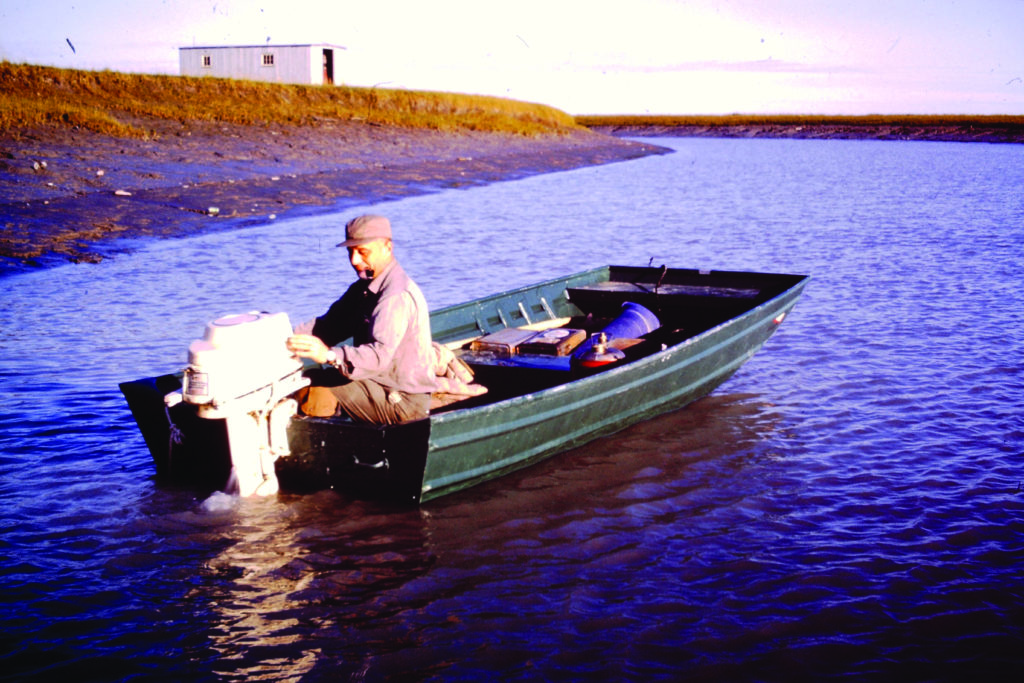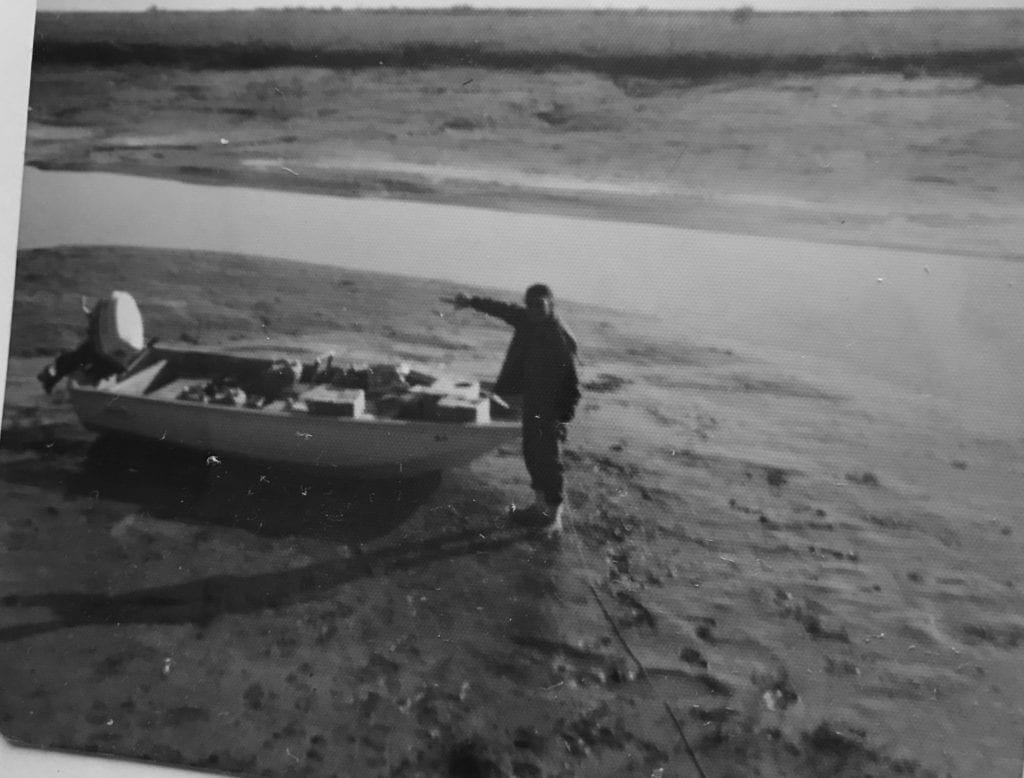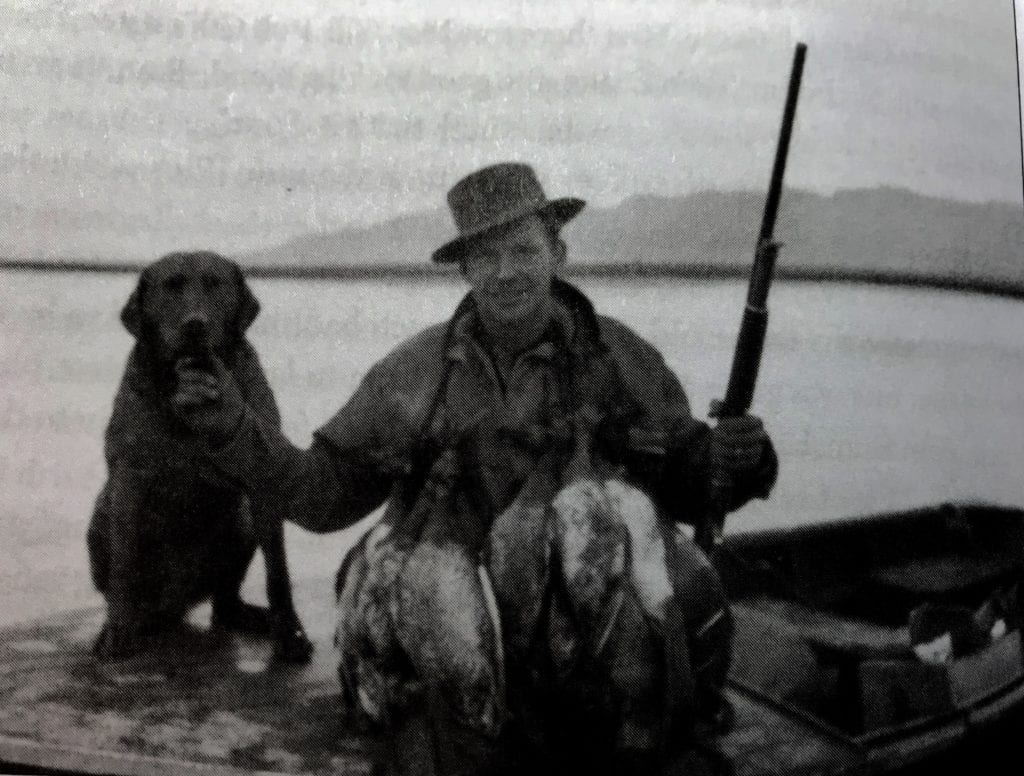
Recently, Anchorage Mayor Ethan Berkowitz used the term “hunker down” to describe what should be done to help prevent spread of coronavirus.
It turns out, years ago, a trio of intrepid duck hunters used hunkering down of a different sort, after becoming lost in the dark on the Copper River Delta.
In October of 1965, my dad, Don Shellhorn, had invited Harry Nicolet and Bob “Moose” Henrichs down to our duck cabin at Pete Dahl for a Columbus Day weekend hunt.
Both were lifetime Cordovans. Nicolet’s dad worked for the Copper River and Northwestern Railway, and Harry was a veteran of chasing waterfowl on the Delta from his own cabin on Glacier Slough.
Henrichs was the son of Cordova Postmaster Hollis Henrichs and was nicknamed “Moose” for the help he gave his dad in raising spindly young moose that were flown to Cordova from the Kenai to be transplanted out on the Delta.
Both he and Nicolet had fished commercially on the Delta, and had considerable experience dealing with tides and weather.
However, the Good Friday earthquake, just one year prior to this duck safari, was a game changer, uplifting the Delta nine feet. Which meant that former high tides now reached the level of former low tides, and the sloughs were suddenly a lot shallower. And more difficult to navigate.
The weather for their weekend foray was clear and cold. Not surprisingly, the hunting was slow.

In fact, on Oct. 12, 1965, Henrichs wrote in the cabin log: “Hope we get enough birds so Harry can have some. He is a good cook, though he still lives in the past, all I hear is how well he did last year. Got two snows and one mallard, Don, one teal, and Harry still didn’t connect.
Harry’s reply, in the log: “Tomorrow, Bob Henrichs, tomorrow.”
Ah, yes, tomorrow.
It turned out to be another frosty blue-bird day, and with ice forming in the sloughs. Captain Shellhorn decided it might be a good time to close up the cabin and head home.
By the time they completed all the chores that entailed, twilight, which arrives early in October, was upon them.
“It was pretty dark by the time we left,” recalled Henrichs. “We kept getting lost, turning around and back tracking, with him saying, don’t worry, we’re almost there.”
“Finally, it was pitch black. We didn’t have a clue where we were. Harry and I insisted we stop and spend the night.”
They pulled up to the riverbank, took the outboard off the stern, removed plywood floorboards, laid them on the ground, propped the 14-foot metal Quachita up with oars to create a lean-to, and “slept under it.”

Snow fell that night. They awoke to the honking of Trumpeter swans heading south, and a fluffy white blanket on their exposed hip boots.
Ice crinkled in the slough as they idled their way up to Alaganik landing.
Ironically, years later, Dad and my mom, Anita, also hunkered down, this time in almost continual daylight, with the cabin clearly visible 500 yards away.
On July 10, 1975, Dad misjudged the tide in the Lower Cutoff, a shortcut to the cabin, and the pair was stuck high and dry for 12 hours, luckily with a full boatload of provisions, which undoubtedly included a case of Dad’s beloved Lucky Lager.
Nearby Pete Dahl slough, full of water, was the barrier that prevented them from walking to the cabin.
The next morning, after finally making it to the cabin and unloading the boat, they settled in for a long nap. The bunks were considerably more comfortable than sleeping on boat cushions with mosquitos as bed mates.
When they finally arose, Dad cooked dinner for Mom.
And wrote one of my all-time favorite cabin-log entries:
“As a navigator I am a very good steak cooker.”
This tale, and many others of Copper River Delta adventures, can be found in Shellhorn’s book, Time and Tide.





